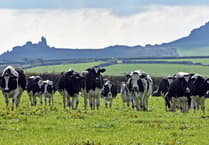As the UK Government prepares for the Autumn Budget, the Welsh Affairs Committee has released a report highlighting a long-standing concern within the industry: that UK policy does not always account for the distinct circumstances of Welsh agriculture.
The report criticises what it describes as Government “complacency” and raises questions about the long-term sustainability of the sector under current policy approaches.
Agriculture occupies more than 90% of Wales’ land area and Welsh agriculture accounts for around 11% of the UK’s agricultural workforce, despite Wales making up less than 5% of the wider population. It underpins a food and drink sector valued at over £9.3 billion. At the same time, the Committee notes declining livestock numbers, a shrinking workforce and lower average farm incomes when compared with other parts of the UK. Its assessment that Welsh farming is “resilient but under heavy strain” reflects this mixed picture.
The report highlights serious concerns about the UK Government’s proposed inheritance tax reforms, noting a lack of clarity over how they would affect Welsh farming. Committee members warn that the changes could particularly impact elderly farmers and those with terminal illnesses who have planned their affairs around existing tax rules, potentially leaving families with unexpected and significant tax burdens. Criticising Ministers for failing to assess the effects on Wales, the Committee calls for a delay to the reforms until a Wales-specific impact assessment is completed.
Funding arrangements also feature prominently. The decision to “Barnettise” agricultural support - folding previously ring-fenced funding into the broader Welsh Government Block Grant - has raised questions about whether resources for farming will be maintained at current levels. The Farmers’ Union of Wales argued during the inquiry that the change amounts to a real-terms reduction. The Committee has urged the Treasury and the Wales Office to work with the Welsh Government to ensure that support for the sector is not reduced or deprioritised.
Trade policy is another area of concern. The Committee highlights evidence suggesting that recent free trade agreements with Australia and New Zealand have had a disproportionate impact on Welsh livestock producers, and notes potential risks from future agreements currently under negotiation.
Looking ahead, the report stresses the need for a clear long-term vision for Welsh agriculture, with pathways for new entrants, stronger focus on food security, and support for economically sustainable farming practices. It concludes by recommending that future UK policy decisions affecting agriculture in Wales be accompanied by Wales-specific impact assessments to reflect the nation’s unique cultural, environmental and economic context.





Comments
This article has no comments yet. Be the first to leave a comment.